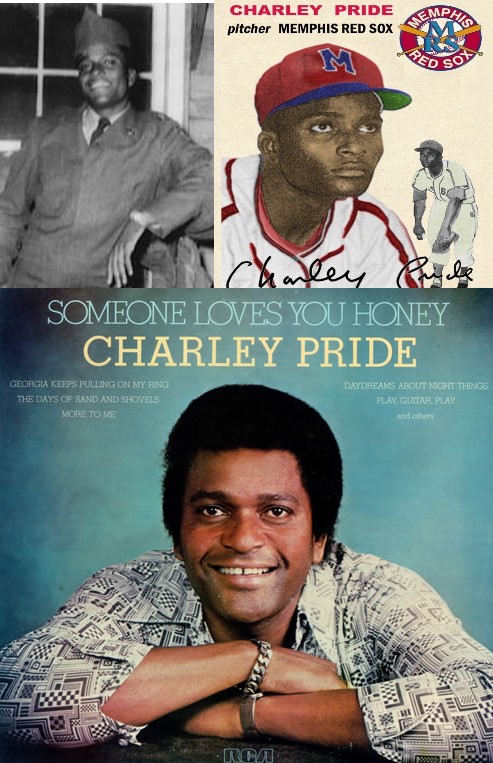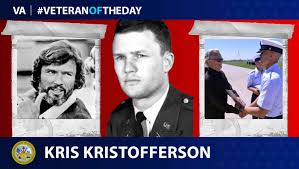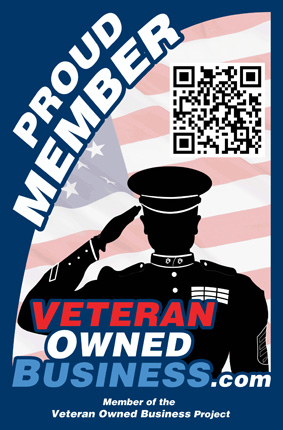Remembering Charley Pride | County Music Singer, Professional Baseball Player and U.S. Army Veteran
Just heard of the passing of #CharleyPride! Did you know that before Pride went on to win the “Entertainer of the Year” award at the County Music Association Awards in 1971, he served (after being drafted) in the U.S. Army from 1956 to 1958.

Pride died in Dallas on December 12, 2020, of complications related to COVID-19. He was 86 years old. RIP Charley Pride! Thank you for your service!
(the following details about the life of Charley Frank Pride is provided in part from Wikipedia's site)
Charley Frank Pride (March 18, 1934 – December 12, 2020) was an American singer, guitarist, and professional baseball player. His greatest musical success came in the early to mid-1970s, when he was the best-selling performer for RCA Records since Elvis Presley. During the peak years of his recording career (1966–87), he had 52 top 10 hits on the Billboard Hot Country Songs chart, 30 of which made it to number one. He won the Entertainer of the Year award at the Country Music Association Awards in 1971.
Pride was one of three African-American members of the Grand Ole Opry (the others are DeFord Bailey and Darius Rucker). He was inducted into the Country Music Hall of Fame in 2000.
Early life
Pride was born on March 18, 1934, in Sledge, Mississippi, the fourth of eleven children of poor sharecroppers. His father intended to name him Charley Frank Pride, but owing to a clerical error on his birth certificate, his legal name was Charley Frank Pride. Eight boys and three girls were in the family. His elder brother, Mack Pride, played Negro league baseball before entering the ministry.
Career
Baseball and military service
When Pride was 14, his mother purchased his first guitar and he taught himself to play.Though he loved music, one of Pride’s lifelong dreams was to become a professional baseball player. In 1952, he pitched for the Memphis Red Sox of the Negro American League. In 1953, he signed a contract with the Boise Yankees, the Class C farm team of the New York Yankees. During that season, an injury caused him to lose the “mustard” on his fastball, and he was sent to the Yankees’ Class D team in Fond du Lac, Wisconsin. Later that season, while in the Negro leagues with the Louisville Clippers, two players – Pride and Jesse Mitchell – were traded to the Birmingham Black Barons for a team bus. “Jesse and I may have the distinction of being the only players in history to be traded for a used motor vehicle,” Pride mused in his 1994 autobiography
Pride pitched for several other minor league teams, his hopes of making it to the big leagues still alive, but was drafted into the US Army in 1956. After basic training, he was stationed at Fort Carson, Colorado, where he was a quartermaster and played on the Fort’s baseball team. That team won the “All Army” sports championship. When discharged in 1958, he rejoined the Memphis Red Sox. He tried to return to baseball, though hindered by an injury to his throwing arm.
Pride played three games for the Missoula Timberjacks of the Pioneer League (a farm club of the Cincinnati Reds) in 1960, and had tryouts with the California Angels (1961) and the New York Mets (1962) organizations, but was not picked up by either team.
When he was laid off by the Timberjacks, he moved to work construction in Helena, Montana, in 1960. He was recruited to pitch for the local semipro baseball team, the East Helena Smelterites, and the team manager helped him get a job at the local Asarco lead smelter. The lead smelter kept 18 jobs open specifically for baseball players, and arranged their shifts so they could play as a team. Pride batted .444 his first year.
Pride’s singing ability soon came to the attention of the team manager, who also paid him to sing for 15 minutes before each game, which increased attendance and earned Pride another $10 on top of the $10 he earned for each game. He also played gigs in the local area, both solo and with a band called the Night Hawks, and Asarco asked him to sing at company picnics. His job at the smelter was dangerous and difficult; he once broke his ankle. He routinely unloaded coal from railroad cars, shoveling it into a 2,400 °F furnace while keeping clear of slag, a task which frequently gave him burns. In a 2014 interview, Pride explained, “I would work at the smelter, work the swing shift and then play music,” said Pride. “I’d work 11–7. Drive. Play Friday. Punch in. Drive. Polson. Philipsburg.”
Between his smelter job and his music, he made a good living in the Helena area. He moved his wife and son to join him and they lived in Helena until 1967, purchasing their first home there, and with their children Dion and Angela being born at the local hospital. The Pride family moved to Great Falls, Montana, in 1967, because Pride’s music career was taking off and he required quicker access to an airport. The family ultimately left Montana and moved to Texas in 1969. In a 1967 interview with the Helena Independent Record, Rozene commented that the family encountered minor racism in Montana, citing an incident where they were refused service in a restaurant and another time when a realtor refused to show them a home, but she felt that the family endured less racism than she saw leveled against local Native American people, whose treatment she compared to that given to black people in the South. Pride has generally spoken with fondness of the near-decade he spent there. “Montana is a very conservative state…I stood out like a neon. But once they let you in, you become a Montanan. When the rumor was that I was leaving. They kept saying, ‘we will let you in, you can’t leave.'”
On June 5, 2008, Pride and his brother Mack “The Knife” Pride and 28 other living former Negro league players were “drafted” by each of the 30 Major League Baseball teams in a recognition of the on-field achievements and historical relevance of 30 mostly forgotten, Negro league stars. Pride was picked by the Texas Rangers, with whom he has had a long affiliation, and the Colorado Rockies took his brother.
Rise to fame
While he was active in baseball, Pride had been encouraged to join the music business by country stars such as Red Sovine and Red Foley, and was working towards this career. In 1958, in Memphis, Pride visited Sun Studios and recorded some songs.
He performed his music solo at clubs and with a four-piece combo called the Night Hawks during the time he lived in Montana. His break came when Chet Atkins at RCA Victor heard a demonstration tape and got Pride a contract. In 1966, he released his first RCA Victor single, “The Snakes Crawl at Night”. Nashville manager and agent Jack D. Johnson signed Pride. Atkins was the longtime producer at RCA Victor who had made stars out of country singers such as Jim Reeves, Skeeter Davis, and others. Pride was signed to RCA Victor in 1965. “The Snakes Crawl at Night” did not chart. On the records of this song submitted to radio stations for airplay, the singer was listed as “Country Charley Pride”. Pride disputes that the omission of a photo was deliberate; he stated that getting promoters to bring in a black country singer was a bigger problem: “people didn’t care if I was pink. RCA signed me… they knew I was colored…They decided to put the record out and let it speak for itself.” While living in Montana, he continued to sing at local clubs, and in Great Falls had an additional boost to his career when he befriended local businessman Louis Allen “Al” Donohue, who owned radio stations including KMON, the first stations to play Pride’s records in Montana.
Soon after the release of “The Snakes Crawl at Night”, Pride released another single called “Before I Met You”, which also did not chart. Not long afterwards, his third single, “Just Between You and Me”, was released. This song finally brought Pride success on the country charts. The song reached number nine on Hot Country Songs on February 25, 1967.
According to a news item by the Associated Press, Pride made this comment in a 1992 interview: “They used to ask me how it feels to be the ‘first colored country singer’ .. Then it was ‘first Negro country singer;’ then ‘first black country singer.’ Now I’m the ‘first African-American country singer.’ That’s about the only thing that’s changed”.
Career peak
The success of “Just Between You and Me” was enormous. Pride was nominated for a Grammy Award for the song the next year. In the late summer of 1966, on the strength of his early releases, he was booked for his first large show, in Detroit’s Olympia Stadium. Since no biographical information had been included with those singles, few of the 10,000 country fans who came to the show knew Pride was black, and only discovered the fact when he walked onto the stage, at which point the applause trickled off to silence. “I knew I’d have to get it over with sooner or later,” Pride later remembered. “I told the audience: ‘Friends, I realize it’s a little unique, me coming out here—with a permanent suntan—to sing country and western to you. But that’s the way it is.’ ”
–Christgau’s Record Guide: Rock Albums of the Seventies (1981)
The show became the first of a long and active career playing to large audiences, his race soon becoming a minor detail compared to his success. In 1967, he became the first black performer to appear at the Grand Ole Opry since founding member DeFord Bailey, who had last appeared in 1941. Between 1969 and 1971, Pride had eight singles that reached number one on the US Country Hit Parade and also charted on the Billboard Hot 100: “All I Have to Offer You (Is Me)”, “(I’m So) Afraid of Losing You Again”, “I Can’t Believe That You’ve Stopped Loving Me”, “I’d Rather Love You”, “Is Anybody Goin’ to San Antone”, “Wonder Could I Live There Anymore”, “I’m Just Me”, and “Kiss an Angel Good Mornin'”. The pop success of these songs reflected the country/pop crossover sound that was reaching country music in the 1960s and early 1970s, known as “Countrypolitan”. In 1969, his compilation album, The Best of Charley Pride, sold more than one million copies, and was awarded a gold disc. Ultimately, Elvis Presley was the only artist who sold more records than Pride for RCA Victor.
Pride sang the main soundtrack song “All His Children” for the Paul Newman-directed film Sometimes a Great Notion in 1970. The film starred Newman and Henry Fonda and received two Oscar nominations in 1972, one being for the song that Pride sang.
Personal life and death
Pride met his wife Rozene while playing baseball in Memphis. They married in 1956 while Pride was on Christmas leave from Army basic training, and had two sons, Kraig and Dion, and a daughter, Angela. They resided in Dallas, Texas. They also had five grandchildren and two great-grandchildren.
Pride had a tumor removed from his right vocal cord in 1997 at the University of Arkansas for Medical Sciences. He returned to the site in February 2009 for a routine checkup and surprised the Arkansas Senate with an unplanned performance of five songs. He was joined by Governor Mike Beebe during the show.
Pride was a fan and part owner of the Texas Rangers.
Pride died in Dallas on December 12, 2020, of complications related to COVID-19. He was 86 years old.
RIP Charley Pride! Thank you for your service!







